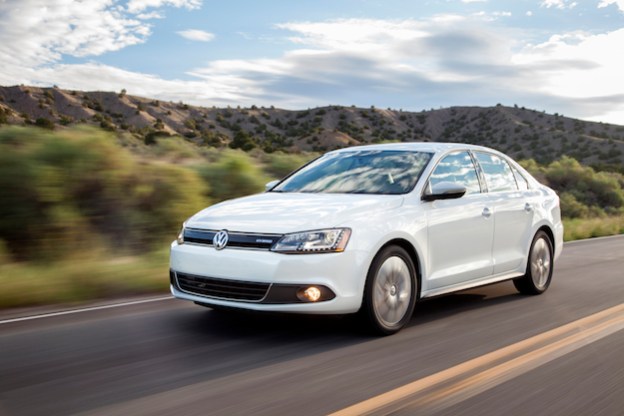
Hybrids aren’t just fuel-efficient. They’re finally fun, too. Take the Volkswagen Jetta Turbo Hybrid. It’s both peppy and frugal, making it the best of both worlds.
With brand-new hybrids hitting the market like the Jetta Hybrid, it’s no surprise that hybrid sales increased by 32 percent between 2012 and 2013. Though the jump is significant, hybrid sales are still a small blip on the new car sales radar, accounting for only four percent of new car sales, according to the Los Angeles Times.
For several years, hybrid sales flat-lined at around three percent of the total market. Now, however, they’re growing. At the rate hybrid sales appear to be expanding, they could command over eight percent of total sales by 2020.
In fact – if ExxonMobil is to be believed – by 2040, hybrids will account for more than 50 percent of new car sales.
It’s not hard to understand why hybrids are becoming more popular: they’re getting better and becoming cooler.
When the Prius first hit the road, it was a lone wolf, an outlier, an obscure hippie-mobile. No more. Now there are compact hybrids, SUV hybrids, and even hybrid supercars like the LaFerrari. And as gas prices continue to ratchet upward, hybrid sales, too, will climb.
From our standpoint, the next major hurdle hybrids will have to overcome is their dependence on rare earth metals for their on-board battery packs. While hybrids’ fuel savings can help stave off global warming, the harvesting of metals for their batteries could have other environmental consequences.
Editors' Recommendations
- 2022 Toyota Tundra hybrid first drive review: New dog, old tricks
- The best hybrid cars
- 2021 Hyundai Elantra goes hybrid, adds wireless Apple CarPlay and Android Auto
- Fiat-Chrysler pressured dealers to take extra inventory to boost sales numbers
- Most people want to keep their cars away from full self-driving, study says


